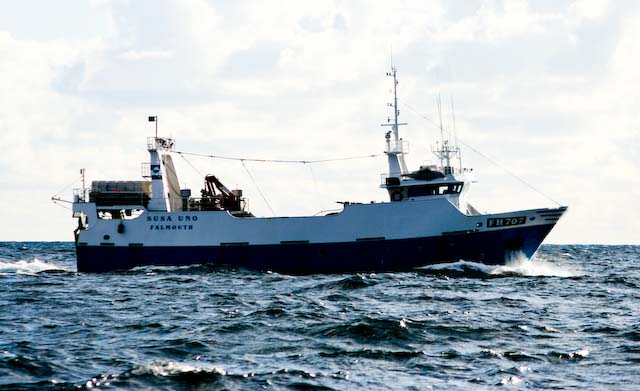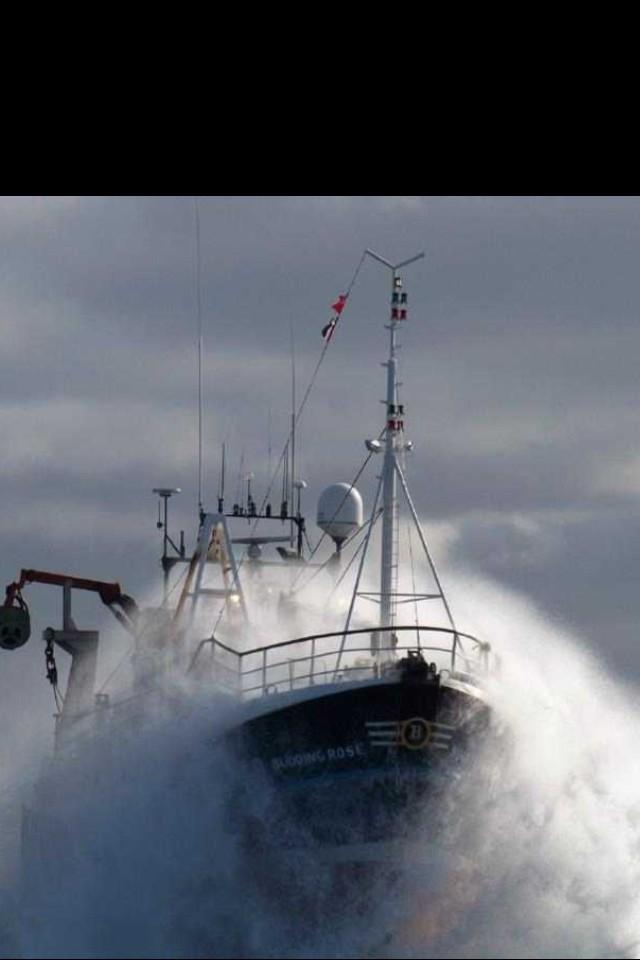As EU and Norway and then next month the EU Council of Ministers, stand poised to depart from central pillars of the Cod Plan1 it is timely and perhaps instructive to take a look at the past decades’ efforts to rebuild the cod stocks in European waters.
In December 2003, European fishermen united to hold an impressive but ultimately unsuccessful, fleet demonstration in Antwerp to voice opposition to the Commission’s proposal to introduce days-at-sea restrictions on vessels that caught any significant amount of cod within the Cod Recovery Zone.
Only a few years later, in 2008, the Council agreed that the original Plan3 wasn’t working and a new Plan4 was required.
After a period during which recovery appeared stalled, the biomass of cod has now increased in the North Sea for six successive years; although it is inarguable that the rate of rebuilding of the cod stocks, and the reduction of fishing mortality on which this largely depends, would have been much more rapid had ways of reducing regulatory driven discards been found and applied earlier.
The picture in the Irish Sea and West of Scotland is very different. ICES scientists are at a loss to explain what is happening in the Irish Sea other that there is a high level of unaccounted mortality. In the West of Scotland, in addition to predation by the high seal population, TAC driven discards are recognised as the main impediment to recovery. It is clear that in these two cases the central planks of the Cod Plan, reduced TACs, underpinned by effort control, have failed.
It should not be forgotten that for environmental reasons we appear to be in a period of low productivity for cod, with a series of low year classes and low recruitment, which doesn’t help in rebuilding the stocks. And even after fishing mortality has been reduced to target levels for recovery, it can take some time before the stocks respond.
Nevertheless, the Celtic Sea, the area which the NFFO and others had successfully fought to keep out of the Cod Recovery Zone and “recovery” measures such as effort control, has seen a dramatic improvement in its cod stocks. In 2011 the TAC for cod was increased by 151% to reflect that improvement.
What Works; What Doesn’t?
Given the plethora of intertwined measures introduced to address the problem of declining cod stocks, it is not easy to determine which measure has delivered in terms of reducing fishing mortality on cod. We are helped in drawing conclusions by the work of STECF which was charged with the task of evaluating the most recent plan and then describing options for improvement. Nevertheless, there great scope for subjectivity in deciding on the question of ascribing weight to each factor:
The measures
Measures to reduce fishing mortality on cod, introduced at various times from 1999, onwards on have included
- Mesh size increase and various gear geometry rules to improve selectivity
- Fishing vessel decommissioning, using public funds to reduce the size of the fleet targeting cod or catching cod as a by-catch
- Effort Control – days-at-sea restrictions
- Landing Controls such as designated ports, reporting requirements etc.
- Dramatically reduced TACs
- Since 2008, various types of cod avoidance, including real time closures and Catch Quota trials using CCTV and incentivised selectivity
Even harder to weigh but undoubtedly significant, have been attitudinal changes within the fishing industry linked, at least in the UK, to the allocation of quota from decommissioned vessels and the ability to acquire quota, allowing vessels to operate legally despite the huge TAC reductions. Similar changes to the quota management regime in Denmark, the second largest cod catching member state, have been significant.
A further complication in assessing which measures worked and which didn’t is seen the way that the effort control regime undermined improvements in gear selectivity as vessel owners fled the punitive regime for vessels using larger mesh sizes to smaller mesh fisheries such as nephrops. STECF concluded that for this reason, the average mesh size in use in the North Sea decreased over the period despite an increase in the minimum mesh size for vessels targeting the larger whitefish from 90mm to 120mm. This trend is likely to have been reversed more recently through incentivised changes to the gear deployed.
STECF’s conclusions were that TAC reductions and effort control have been inadequate in reducing fishing mortality on cod, although the measures introduced have contributed to the rebuilding of other demersal species. TAC reductions in mixed fisheries have generated large levels of discarding of cod and effort control has produced perverse effects that undermined the improvements in gear selectivity and often intensified fishing activity, during the time the vessels are permitted to go to sea.
On the other hand, the changes to the Cod Plan in 2008, and specifically the provisions for encouraging cod avoidance and discard reduction, were identified as producing positive and significant results, even if hampered by an overly bureaucratic mind-set by those who wrote the Regulation.
Where Now?
In the next few weeks we will see if the lessons learnt over the last 10 years will be applied to the current cod regime. There is much at stake:
- If the 20% reduction in the North Sea Cod TAC in the Cod Plan is followed , the industry, member states and scientists all agree this will lead to a huge increase in discards and a setback for those parts of the plan that do work, such as incentivised cod avoidance: EU and Norway have the power to take a different course during their negotiations for an annual reciprocal fisheries agreement
- The Council of Ministers has the legal authority to freeze the pre-programmed effort reductions that are required under the Cod Plan. The Council begins on 18th December.
- TAC decisions in the Irish Sea and West of Scotland made at the Council will be significant. The key question will be whether the Council follows the TAC decisions predetermined in the Cod Plan in the full knowledge that reductions will achieve nothing in terms of reducing mortality, or whether the first steps towards a new approach will be taken. Specifically, will there be a move towards adoption of the type of approach outlined in the North West Waters RAC advice Breaking the Cycle of Decline to rebuild the cod stocks in a more rational way by addressing the discard issue?
In the slightly longer term, the Commission has proposed an amended interim Cod Plan which addresses most of the most glaring problems in the current plan, pending the development of full mixed fishery ICES and the emergence of a full mixed- fishery plan. The interim regime should be adopted through co-decision during the first half of next year.
10 Years On: Lessons Learnt
After 10 years of cod recovery measures it is possible to say that those who took part in the Antwerp fleet demonstration have been vindicated: effort control has been a colossal distraction. It is difficult to demonstrate that restrictions on time-at-sea has directly saved a single cod; yet it has caused great social and economic dislocation and huge difficulties fisheries for administrators and the industry. Most tellingly, STECF has concluded that there is no linear relationship between effort reductions and a reduction in fishing mortality. It is inconceivable if this had been widely understood in 2003 that ministers would have adopted a plan based on it.
On the other hand publicly funded decommissioning is now vilified by the EU Court of Auditors and the Commission. But it is difficult to envisage the dramatic reduction in fishing mortality in the North Sea cod or plaice fisheries, or the Celtic Sea demersal fishery without this decisive intervention in a number of member states, including the UK.
Perhaps one of the most significant lessons and certainly the most costly to learn in that in mixed fisheries such as ours is that drastic TAC reductions generate huge discards of mature cod, unless accompanied by intelligent supplementary measures
Without compliance, regulation is pointless and over the past 10 years it is possible to see a dramatic change within the industry as blackfish has been pushed from centre stage to the margins. It should be remembered however that compliance requires profitability as a precondition; and it is all too easy to generate discards if the issues are not thought through.
Long Term Management Plans offer the prospect of setting long term objectives and moving progressively towards those goals bringing stability into TAC decisions; nevertheless it is important that such plans have an escape clause that allows fisheries managers to address various types of unforeseen eventualities.
Cod Avoidance in its various forms has proved that it has great potential if it is approached creatively; but it can only work if there is a correspondence between the TAC and the fish on the grounds and it makes sense at vessel level. At present, additional quota and effort exemptions are used to incentivise cod avoidance but the perverse side effects of effort restrictions suggest that it should be replaced as soon as is practical. Imaginative forms of fully documented fisheries are probably the key to moving forward here.
A Plan based on an undue focus on a single species within the context of a mixed and multi-species fishery is going to struggle to achieve its objectives. The future will be about designing long term management plans with the mixed fishery and multi-species dimension at its heart.
Turning Point
There is reason to believe that we have reached a turning point – but only if the Commission, member states and European Parliament learn the lessons of the last decade. Even where, as in the Irish Sea and West of Scotland, the scientific assessments do not yet point towards rapidly rebuilding stocks, the flaws in the current approach have been recognised and we can begin to do something about them. The speed at which this will take place is largely dependent on the untried co-decision process with decisions in the Council of Ministers and the European Parliament.
In the North Sea, the priority must be avoiding taking a backward step by blindly following the provisions of a plan that has been evaluated and found to be flawed.
Notes
1Actually plans, because the North Sea TAC is set in relation to a long term management plan agreed between EU and Norway but over the last 10 years all other EU cod TACs and the effort regime have been decided unilaterally by the EU Council of Ministers. Following the Lisbon Treaty, there is a bitter dispute between the Council and the European Parliament over who has competence in the area of setting TACs when these are decisions are predetermined by a long term management plan. The dispute shows every sign of heading to the European Court of Justice for resolution.
2Cod Recovery Zone: North Sea, West of Scotland, Irish Sea and Eastern Channel.
3Cod Recovery Plan (EC. 423/2004) covering the North Sea, Irish Sea, West of Scotland, Kattegat and Eastern Channel.
4Cod Management Plan (EC. No. 1342/2008 of 18th December 2008 establishing a long term plan for cod stocks and fisheries exploiting those stocks


